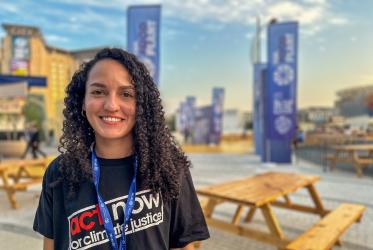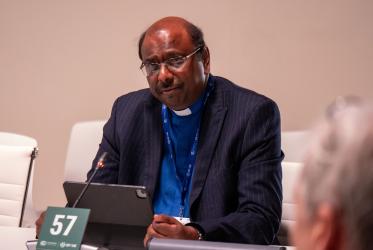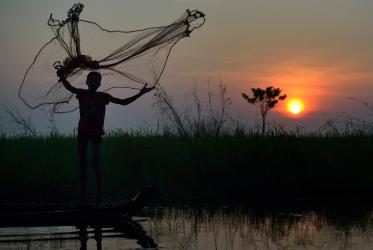Mostrando 1 - 20 de 134
Voice of churches vital during UN women’s rights talks
28 Marzo 2024
What can churches do to prevent modern slavery?
22 Febrero 2024
Ellyanne Chlystun-Githae Wanjiku to COP28: “listen more to children”
13 Diciembre 2023
At COP28, WCC general secretary hopes for “less talk and more walk”
01 Diciembre 2023
A Guide for Churches on the Prevention of Obstetric Fistula
26 Octubre 2023
ACT Alliance general secretary: “equity is not negotiable”
26 Septiembre 2023














